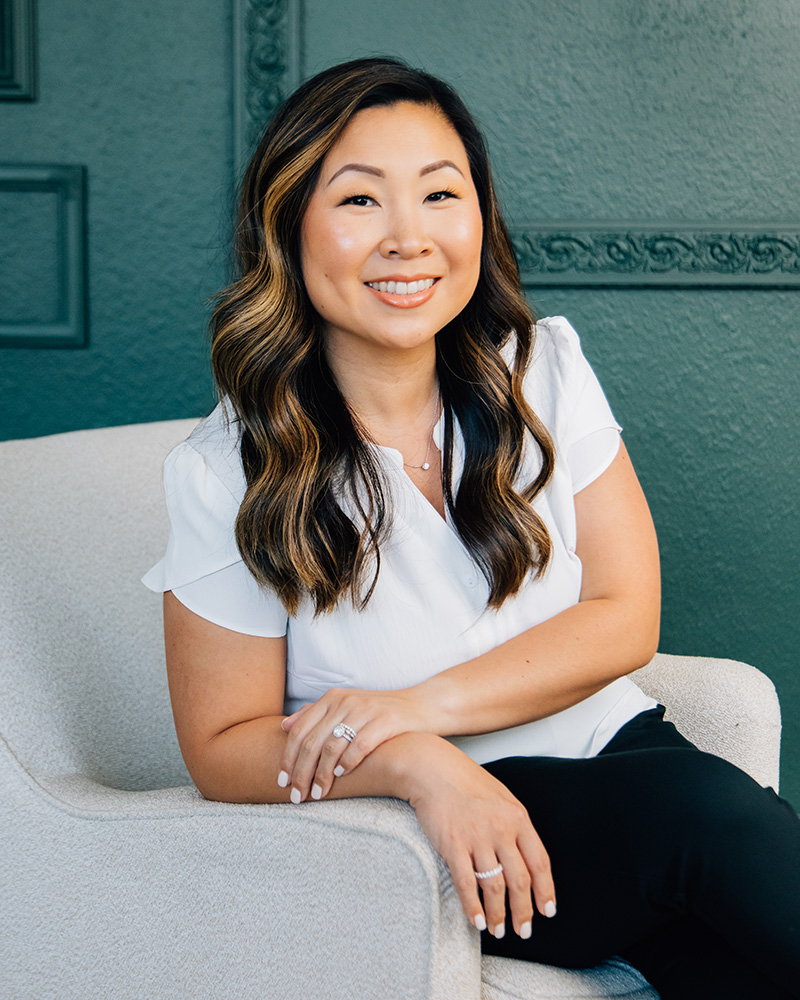
As a Licensed Marriage and Family Therapist, I often see firsthand how cultural and societal factors influence the mental health of individuals and families.
The Asian American and Pacific Islander (AAPI) community are least likely to seek mental health services compared to other racial/ethnic groups. Therapy can offer profound benefits for this diverse group, yet there are still significant barriers—such as stigma and a lack of culturally competent care—that prevent many from seeking the help they need.
In this blog post, I will explore why therapy is so crucial for the AAPI community, the specific challenges they may face, and how therapy can be a transformative tool for healing and growth.
Breaking the Stigma Around Mental Health
Historically, mental health issues have been seen as a taboo subject within many AAPI cultures. The cultural value of maintaining face, or “saving face,” can lead to avoidance of discussing personal struggles and emotions. In some cultures, the idea that mental health issues reflect poorly on the individual or family can create shame and resistance to seeking help. This stigma often leads to people suffering in silence.
Therapy provides a safe, confidential space where individuals can express their feelings without fear of judgment. Over time, as more AAPI individuals engage with mental health professionals, this stigma can be diminished, leading to greater acceptance and understanding of the importance of mental health care.
As a therapist, I often work with AAPI clients to navigate these cultural barriers, helping them understand that seeking therapy is not a sign of weakness but an act of self-care and resilience.
Intergenerational Trauma
The AAPI community encompasses a wide range of ethnic backgrounds, each with its own unique history of migration, cultural traditions, and challenges. Many individuals experience intergenerational trauma, which refers to the emotional and psychological pain passed down from one generation to the next due to experiences such as war, displacement, racism, and cultural dislocation.
For example, refugees and immigrants who fled war-torn countries or experienced discrimination in their new homes may carry unresolved trauma that impacts their mental health and their relationships. This trauma may be passed down to younger generations in the form of anxiety, depression, or difficulty navigating the balance between cultural heritage and acculturation.
Therapy offers an opportunity to address and heal from this trauma. Through techniques like trauma-informed care and EMDR (Eye Movement Desensitization and Reprocessing), therapists can help clients process past pain and develop healthier ways to cope with and overcome the effects of intergenerational trauma.
Navigating Cultural and Familial Expectations
AAPI individuals often face a complex web of cultural and familial expectations that can lead to significant stress. Many cultures place high value on family loyalty, academic achievement, and career success. While these values can be a source of pride and motivation, they can also create pressure and conflict, particularly when an individual’s personal goals or identity differ from those of their family or community.
As a therapist, I frequently work with clients who are struggling to reconcile their own desires with the expectations placed on them by family members. For example, a young adult may feel torn between pursuing a career in the arts—something they are passionate about—and the pressure to become a doctor, lawyer, or engineer. Another area I often see people navigate that may be challenging within their family is dating or marrying someone from another ethnic/racial background than their own.
Therapy can help individuals develop coping strategies to manage family dynamics and offer a space where they can explore their own identity free from judgment. It can also support families in having open, honest conversations that foster greater understanding and reduce generational conflict.
Racial Discrimination and Its Impact on Mental Health
Racism and discrimination are pervasive challenges that affect the mental and emotional well-being of many individuals. Whether it’s experiencing microaggressions in the workplace, being stereotyped in the media, or facing overt acts of racism, these experiences can take a significant toll on mental health. Many individuals internalize these experiences, leading to feelings of heightened anxiety, helplessness, low self-worth, or depression.
Therapy provides an outlet for addressing the effects of racial discrimination. By addressing issues related to racism and identity, therapists can help clients build resilience and develop a stronger sense of self-worth.
Therapy offers invaluable support for the AAPI community in navigating the complex intersections of culture, identity, and mental health.
Whether addressing stigma, intergenerational trauma, or the challenges of family dynamics, therapy provides an essential space for healing and growth. I am deeply committed to offering a culturally informed approach that supports individuals and families in creating stronger, more resilient lives.
Share This Story!
Angela Confaloni, LMFT is a Licensed Marriage and Family Therapist based in Orange, California, providing online therapy to moms, the AAPI community and adults going through life transitions.





